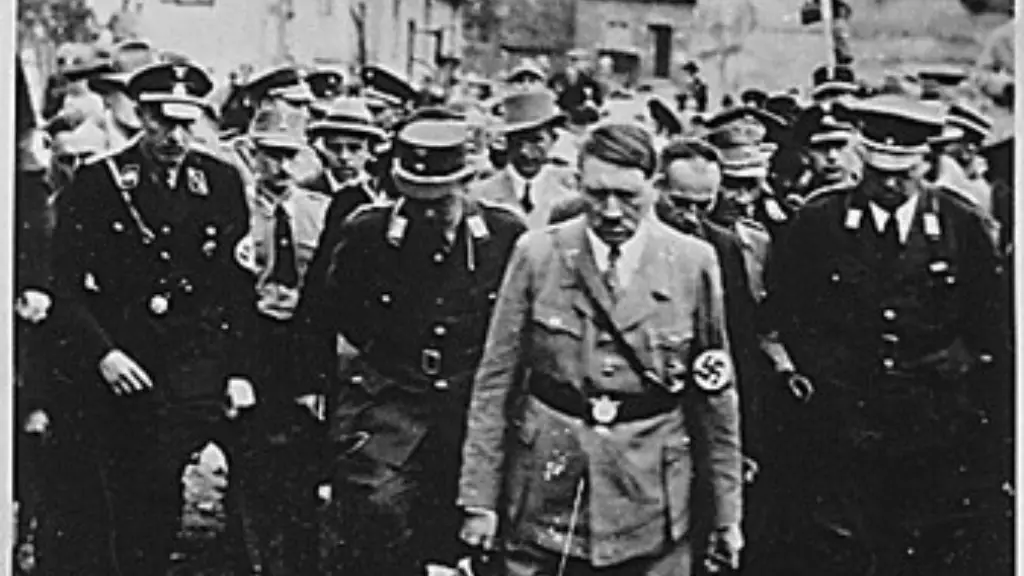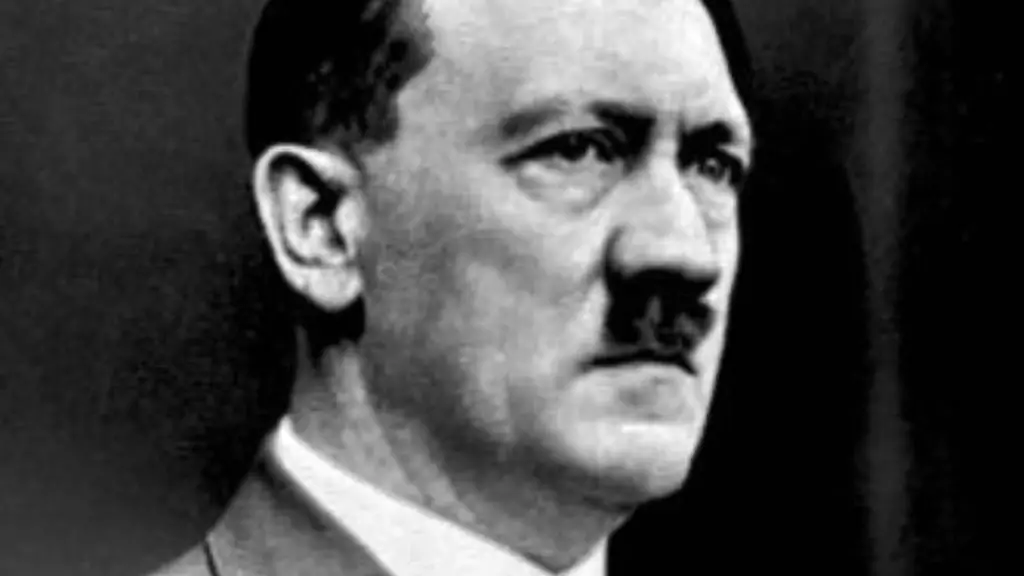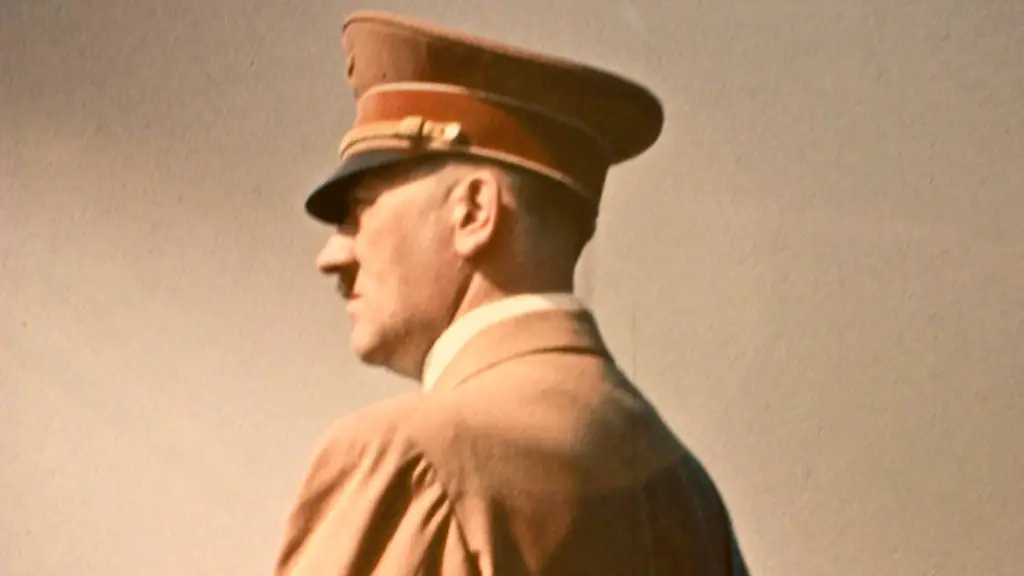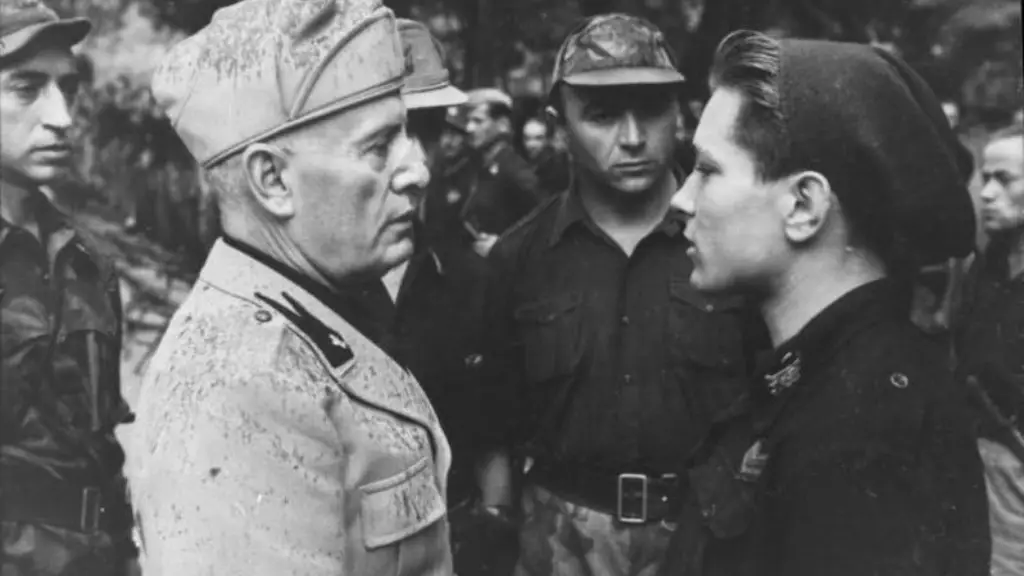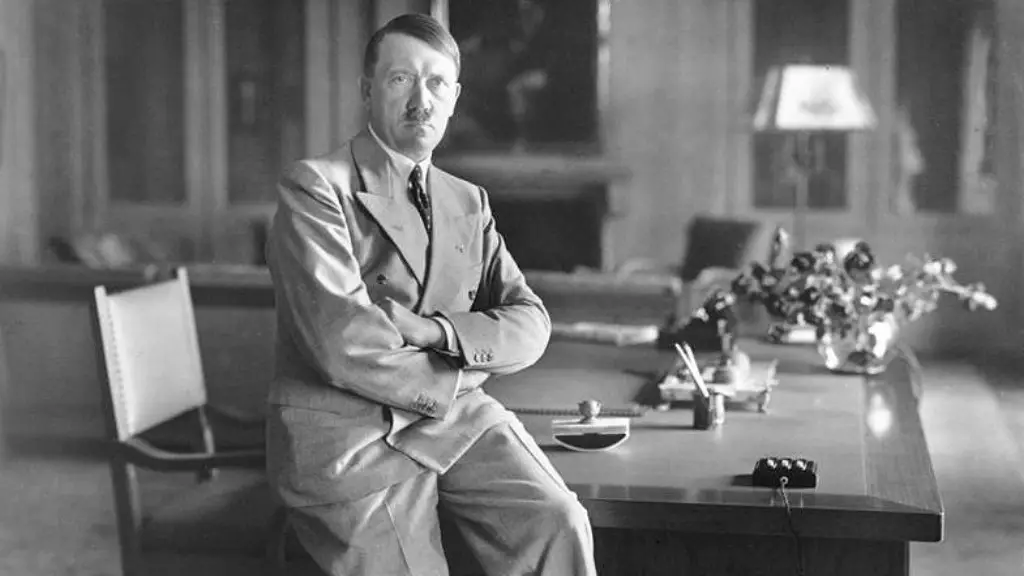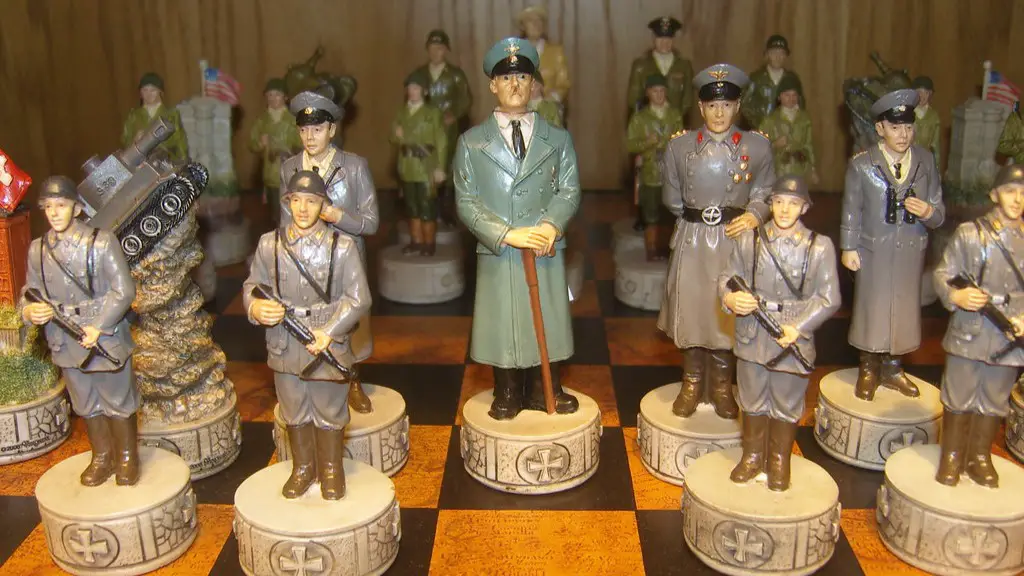Hitler’s Rise to Power
Adolf Hitler’s rise to power is a story filled with manipulation and intrigue. Hitler tapped into the German hunger for a scapegoat and the rising tide of anti-Semitism. He exploited existing divisions in the German populace to make a case for his party, the Nazi party. Through a combination of fear mongering, false promises, and tough talk, Hitler was able to gain control of the German government by January 1933.
The rise of Hitler to power began with his appointment to the office of Chancellor of Germany in January 1933. Led by his Nazi party, the majority of the Reichstag, Germany’s parliament, voted to grant Hitler expanded powers. This effectively brought an end to Germany’s short-lived democratic state. At the time, Germany had suffered from the strains of the Great Depression, high unemployment, and a failing economy. Hitler’s plans to restore national pride resonated with the German people and earned him considerable popularity.
With a platform of nationalism and anti-Semitism, Hitler successfully campaigned for chancellor in the 1932 election. Immediately after coming to power, he sought to quench the people’s unrest by scapegoating Jewish people. In the following months and years, Hitler continued to eliminate his opposition and consolidate power. He passed laws legally obligating individuals and businesses to join his party, enacted the Nuremberg Laws which stripped Jews of their rights, and created an army of loyal Nazi followers.
Hitler’s party used strong rhetoric and calls for patriotism to gain support. Propaganda films in cinemas and radio broadcasts spread Hitler’s message across Germany. Through fear, intimidation, and violence, Hitler silenced dissenters and created an atmosphere of control and conformity. His appeal to the German people was a major factor in his rise to power.
As Hitler’s power grew, European allies began to worry. His aggressive foreign policies almost certainly led to the outbreak of the Second World War in 1939. This conflict would eventually lead to the downfall of Hitler and the Nazi regime. Yet Hitler’s rise to power and the subsequent atrocities he committed live on as one of the darkest and most tragic chapters in human history.
Mein Kampf and its Impact on German Mindset
Adolf Hitler’s notorious book, Mein Kampf (My Struggle) written while in prison in 1924 provides a glimpse into many of his beliefs and philosophies. While effectively outlining the essence of Nazi ideology, it also proved to be a source of inspiration and motivation for the German people in the tumultuous years leading up to the Second World War.
Mein Kampf was a compilation of ideas Hitler had developed over the years leading up to his arrest and imprisonment in 1923. The book declared strong anti-Semitic sentiments and put forward Hitler’s theories of racial supremacy. It also called for Germany’s expansion by way of conquest, the conquest of more ‘living space’ in the east.
Mein Kampf was met with mixed reviews. Newspapers reviled it and most German universities refused to create courses based on it. From the perspective of many, Mein Kampf seemed to be a wild rant of a madman. Nevertheless, on a larger scale, it began to gain popularity. It was widely published and read by German citizens, even after Hitler rose to power.
When Hitler was arrested in 1923, there were few that truly believed he would ever reach power. Consequently, most of the ideas presented in Mein Kampf appeared to be nothing more than the delusions of an extremist. As Hitler gained ground overall in the German society in the 1930s; his thoughts and ideas in Mein Kampf increasingly began to be taken seriously.
From a historical perspective, Mein Kampf has become a symbol of evil. It was a book used to effectively unite the German people under one belief system and to drive them towards a common cause. For that reason, it is a reminder of the dangers of extremism, intolerance, and hatred.
Nazi Control on German Society
Once Adolf Hitler and the Nazi party achieved full power in Germany, they quickly set about molding the German population in their own image. Every aspect of German life, from art and culture to education and religion, was reworked, rewritten and revised to fit the Nazi agenda. The role played by the Nazi party in German society was one of total domination and absolute authority.
Nazi-controlled Germany was a police state, where agents of the regime monitored day-to-day activity of the people. Local leaders were given regional police powers and were responsible for the implementation of Nazi policies in their localities. Political dissent and any expression of opposition were punishable by prison or death.
Censorship was also enforced on the media, with publications and performances of books, films, and music strictly regulated. All German media was tightly monitored by the Nazi propaganda ministry, led by Joseph Goebbels. German citizens were bombarded with pro-Nazi messages, which served to create a blind obedience in the people.
Education was also heavily influenced by the Nazi’s ideals. Young people in school were indoctrinated in the ideas of racial superiority, nationalism, and militarism. School curriculum also placed a strong emphasis on Nazism’s brand of Germanic mythology and culture. As such, the educational system served to create a society of subservient citizens loyal to Hitler and the Nazi party.
Religious institutions were targeted and heavily persecuted under the Nazi rule. Jews were singled out and persecuted the most. In the later years, Hitler’s purge of ‘weaker’ races, including Gypsies, homosexuals, and people with disabilities was also initiated.
Role of German People in Nazi Rule
German people of the 1930s and 1940s had a range of responses to the Nazi rule. While some opposed the Nazi regime, others sought to collaborate with it or remain neutral. Ultimately, the German people of the time suffered under a totalitarian regime.
The majority of Germans supported the Nazi party and their policies at the time. This dynamic was based both on faith in Hitler’s promises and coercion from the party. Much of this support was driven by propaganda and state-sponsored anti-Semitism. Hitler promised the people a new national identity, a movement from poverty to prosperity, and a bright future for all German citizens.
At the same time, large numbers of Germans were complicit in Nazi crimes. Many willingly participated in Nazi proceedings, such as the organization of concentration camps. Some even benefited from the state’s exploitation of Jewish citizens by receiving their property and businesses.
Nevertheless, there were also those who opposed Hitler and the Nazi regime. Opposition ranged from passive to active resistance. Members of underground series ranging from the White Rose movement to the Edelweiss Pirates actively challenged the regime’s power. Despite the risk of imprisonment or death, these brave individuals showed there was still a sense of humanity amongst some individuals.
Ultimately, the German people of the time found themselves at the mercy of Hitler’s dictatorship. The vast majority followed his orders, some for survival, others for faith and a few for power. Certainly, no one was completely innocent during this dark period of modern history.
Repercussions of Hitler’s Rule
The consequences of Adolf Hitler’s rule were devastating, both in terms of the suffering endured by its victims and the economic damage suffered by Europe. During the Second World War, millions of people perished as a direct result of the Nazi’s policies in the Holocaust, and tens of millions of other lives were lost in battle.
The cost in terms of material wreckage was also widespread. Much of Europe was reduced to rubble, and the economy suffered considerable damage. In 1945, Germany lay in ruins, cities had been destroyed, and the population had been ravaged. The psychological trauma left by the Nazis was also deep. It was estimated that as much as one-third of Germany’s population had been affected by war.
After the war, Germany found itself in a precarious situation. With no means to rebuild the country, a period of economic hardship ensued. To make matters worse, Germany was divided into two parts, East and West. Germany did not achieve full economic stability until the mid-1960s. This illustrates the long-term consequences of the Nazi damage during World War II.
Today, many countries, particularly in Europe, still feel the legacy of Hitler’s rule. His policies of genocide and extermination continue to be some of the most heinous in human history, and serve to remind us of the consequences of a lack of freedom and unchecked power.
Attempts to Educate for A Better Future
As a part of their effort to move on from their dark past, Germany has undertaken a series of educational and public awareness campaigns, geared towards learning from past mistakes and ensuring there is never again a repetition of what happened during Hitler’s rule. These educational campaigns include initiatives such as the memorials in Berlin and other cities which serve to remind people of the devastating effects of the Holocaust, and the National Monument to the Murdered Jews of Europe, built in Berlin in 2005.
The government has also actively worked to improve laws governing the treatment of immigrants in Germany, introducing stringent procedures and regulations to allow only those who are in need of protection to enter the country. Sensitisation drives, both in schools and the wider society, work to educate and inform the populace.
In addition, Germans from all walks of life have regularly spoken out and taken action against anti-Semitism, racism and intolerance. Numerous campaigns have been launched to tackle prejudice and ensure a fairer, more diverse, and open-minded German society. These activities, as well as various laws, seek to prevent any repeat of the kind of oppressive culture that Hitler created in Germany.
Ultimately, it is the responsibility of each generation to learn from the mistakes of the past and work to create a better future. As the German society strives to create a new cultural identity, without forgetting what happened in the years of the Third Reich, perhaps this can be a positive legacy of the legacy of Hitler.
International Human Rights Law and Organizations
The extensive human rights violations during Hitler’s rule and World War II shocked the international community and remain an important reason for the development of human rights law and institutions. Since then, human rights norms have become a central element in international law, with the aim of preventing similar atrocities from happening in the future.
Today, the most important human rights legislation is the Universal Declaration of Human Rights, adopted by the United Nations in 1948 as a response to the Holocaust and other human rights violations. This declaration forms the basis for the development of international human rights law and protects the basic rights of individuals from governments from any form of discrimination.
To ensure that human rights norms are effectively enforced, organizations such as Amnesty International and the International Red Cross were formed. These are organizations that monitor and investigate human rights abuses, while also advocating for international legal reforms. In addition, international tribunals and criminal courts were
